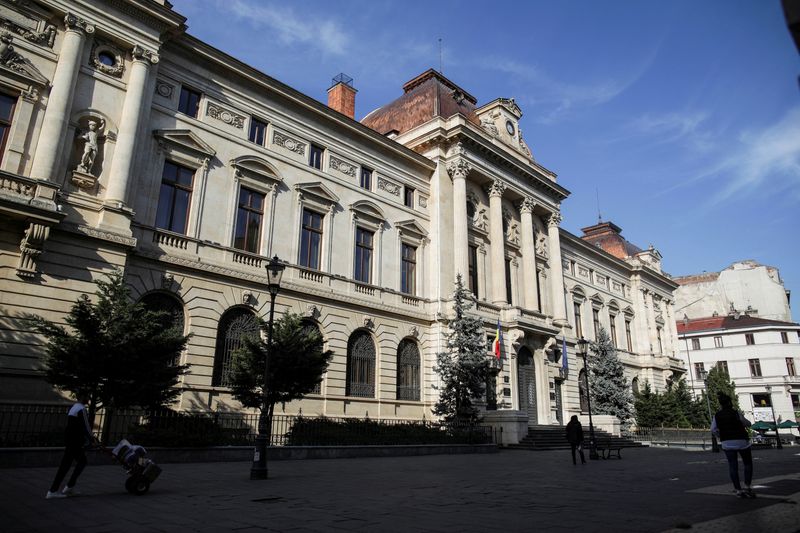
By Luiza Ilie
BUCHAREST (Reuters) – Romania’s largest employer association says a widening budget deficit is siphoning money away from the real economy, while some companies are postponing investment as they await an expected fiscal correction.
The prospect of presidential and parliamentary elections in the European Union member Romania in November and December has triggered a spending surge that is expected to push the budget deficit to 8% of economic output this year.
The government that emerges faces the daunting task of bringing the shortfall below the European Commission’s ceiling of 3.0%, and ratings agencies and analysts expect tax hikes.
Without a budget plan for 2025 available, investors are wary of “shock therapy, meaning out-of-the-blue taxes thrown at the private sector,” Radu Burnete, director of the employer association Concordia, told Reuters in an interview.
“A deficit of 8.0% is dangerous because if something happens – war, some calamity – Romania has no more room … to borrow,” he said. “We want to see a settled plan that brings the deficit under control, one that does so also by making state spending efficient.”
Concordia is Romania’s largest employer association, representing companies from 17 industries that together account for 26% of Romania’s economic output.
“If wages continue to rise faster than productivity as they are now … without creating other competitive advantages, at least 13 industries will see firms shutting down or restructuring,” Burnete said.
The ratings agency S&P said Romania had seen one of the largest increases in real disposable income in the world over the past year, spurred by a 20% public sector wage increase, rise in the minimum wage, and a substantial pension hike.
Burnete said Romania’s economy had been sapped by wage gains and high energy prices that, even capped for some industries, are higher than those of Asian competitors, particularly in high-export industries such as car parts and furniture.
He said less energy-dependent industries, where energy accounted for 2-3% of costs before the war in Ukraine, had seen that rise to 10-12%.
Burnete said the hurdles were also far too high for small and medium-sized Romanian firms to open branches or subsidiaries elsewhere in the bloc, a single market that nevertheless has 27 different legal and fiscal codes.
“We would like to see a simplification. If Europe isn’t competitive, Romania cannot be.”






